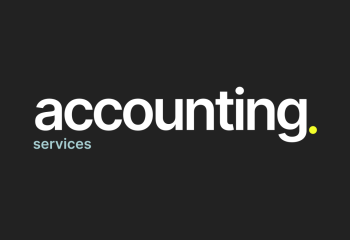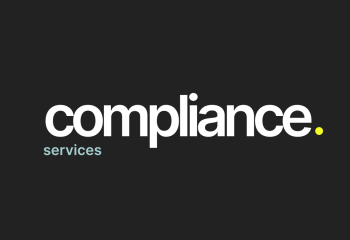Law on Data Opens the Future of Data-Driven Value Creation and Vietnam’s New Billion-Dollar Economy
Views: 1523
In an era where information is as valuable as currency, the data economy has become the primary driving force shaping the world. Data is considered the greatest asset, enabling businesses to create value and better serve customers. Currently, there are approximately 11 billion Internet-connected devices, and this number is expected to reach 80 billion by 2025. The growth of the Internet of Things (IoT) has significantly increased the volume of global digital data, which is projected to reach 180 zettabytes by 2025.
.png)
According to statistics, the amount of global data doubles every 12 hours. The global big data market revenue is expected to reach 308 billion USD in 2023 and over 655 billion USD by 2029. The data economy not only redefines traditional industries but also creates new markets and opportunities.
Vietnam has significant opportunities to develop its data economy, with increasing awareness of the importance of data. From central to local levels, from government agencies to organizations and businesses, data is being regarded as a strategic resource. Leaders and managers seek to leverage and understand data to enhance governance efficiency, optimize processes, and make data-driven decisions. Many businesses have already adopted data to improve customer experience, automate marketing, optimize inventory, and reduce costs.
As a result, several regulations and data management solutions have been introduced, including the Law on Data. On 30/11/2024, the 15th National Assembly passed the Law on Data, which will take effect on 01/72025 (Law No. 60/2024/QH15), comprising five chapters and 46 articles. Specifically:
Chapter I – General Provisions
Chapter I includes 10 articles, defining the scope of the law’s application to Vietnamese and foreign organizations, agencies, and individuals in Vietnam engaged in digital data activities. This law clarifies key terms such as digital data, shared data, open data, original data, etc., to ensure consistency in state management of data.
The Data Law serves as a foundational legal framework, comprehensively governing data-related activities, similar to the Capital Law and the National Defense Industry Law. It establishes detailed regulations on the principles of data development, protection, governance, processing, and utilization; state policies on data; international cooperation and state management of data; data development within Party organizations and socio-political organizations; and prohibited acts.
Data is considered a resource, and the state has policies to mobilize resources to develop data into an asset. The rights of data owners are defined as property rights under civil law. The law assigns state management responsibilities for data to the Government, the Ministry of Public Security, the Ministry of National Defense, other ministries and agencies, and provincial-level People's Committees.
Chapter II – Development, Protection, Governance, Processing, and Utilization of Data; National Data Development Fund
Chapter II comprises 19 articles, regulating data collection, creation, quality assurance, classification, storage, governance, and management. It addresses data access, retrieval, connection, sharing, coordination, and provision to state agencies. The law also includes provisions on data analysis, aggregation, verification, authentication, publication, encryption, and decryption, as well as cross-border data transfer and processing. Additionally, it covers scientific research, technological innovation in data, risk management, data standards and technical regulations, and the National Data Development Fund.
-
The law establishes fundamental compliance requirements for data processing, governance, risk management, and technological innovation in data.
-
The provision of data to state agencies is encouraged and mandatory in emergencies to ensure national security and social order.
-
Cross-border data transfer and processing must comply with detailed regulations to safeguard national security and interests, as well as the rights and interests of data subjects.
-
The National Data Development Fund is established to support digital transformation, research, development, and high-tech applications related to data, particularly in rural, mountainous, and economically disadvantaged areas.
Chapter III – Construction, development of the national data center; national general database
Chapter III consists of 9 articles, regulating the establishment and development of the National Data Center and the National general database. These provisions cover infrastructure development, the responsibilities of the National Data Center, and ensuring resources for its operation. The National Data Center, developed, managed, and operated by the Government, will integrate, synchronize, store, share, analyze, and exploit data from state agencies, providing IT infrastructure for Party and State agencies.
The National general database will collect, update, and synchronize data to support data utilization by Party and State agencies, socio-political organizations, as well as organizations and individuals. This data includes open data, shared data, restricted-use data, and other types provided by organizations and individuals.
The utilization of data from the National general database will help reduce administrative procedures, enhance state management efficiency, and simplify administrative processes. Data connectivity and sharing among systems will be conducted through the National Data Center to ensure information security and safety.
The National Data Center will also be responsible for monitoring data quality, implementing data protection measures, researching and applying data processing technologies, and organizing international cooperation activities in data management.
Chapter IV – Data Products and Services
Chapter IV consists of 5 articles, regulating data products and services, data intermediaries, data analysis and aggregation, and data exchange. The Government will provide detailed regulations on the management of organizations offering these products and services. The development of new data products and services will promote digital transformation and establish the data market.
The data exchange will serve as a platform providing data resources for research, startup development, and data-related products and services. Certain types of data, such as those that may threaten national security and defense or those without data subject consent, are not permitted for trade.
Organizations offering data intermediary services, data analysis, aggregation, and data exchange operations must comply with safety and security regulations, establish continuous information reception channels, and implement robust data security management, inspection, and supervision mechanisms.
Chapter V – Implementation Provisions
Chapter V comprises 3 articles, regulating amendments and supplements to related laws, the law’s effective date, and transitional provisions. The Law on Data introduces additional fees for accessing and utilizing information from the National general database and other national databases.
According to the Law on Data, data is an asset and a resource for digital transformation, driving socio-economic development. Data will become a commodity, necessitating a market for data transactions. Chapter IV of the Data Law outlines general provisions on data products and services, data intermediaries, data analysis and aggregation, and data exchange. However, detailed government guidance on data business conditions and transactions is required to ensure the security of data trading and prevent risks to national security and data breaches.
The prompt completion of a legal framework for data, including the Personal Data Protection Law, will also be implemented and approved soon. This will help ensure the security and privacy of personal data and create a transparent legal environment, fostering sustainable digital economic development and transformation.
At ALTAS, our team of experienced lawyers and experts provides comprehensive legal and compliance services in Vietnam. Our professionals have extensive experience advising multinational corporations in the following areas:
-
Advising and guidance on compliance with with legal regulations related data management, security, processing, and utilization data.
-
Advising and assisting businesses and organizations in complying with data security regulations, ensuring information safety, and mitigating legal risks.
-
Advising and assisting related identifying and protecting data ownership rights and resolving data-related disputes.
-
Advising and assisting in compliance with data processing regulations, ensuring that data processing activities adhere to legal requirements.
-
Advising and assisting on the lawful and secure use of data, ensuring that data utilization activities do not violate the law.
-
Advising and training for businesses and investors on utilization data regulations
ALTAS is committed to supporting investors and businesses in this transitional period. For further information or legal assistance in compliance with Vietnamese laws, please contact ALTAS at contact@altas.vn.
Author: ALTAS Managing Partner & Mr. Nguyen Tran Ngoc Thach (Senior Legal Assistant)
Date: 12.02.2025
.png)

























![?️ [ALTAS TALK IS COMEBACK | SERIES: “TAX MATTERS 2025”] ?️ [ALTAS TALK IS COMEBACK | SERIES: “TAX MATTERS 2025”]](thumbs/210x144x1/upload/news/altas-talkintro-7705.png)



